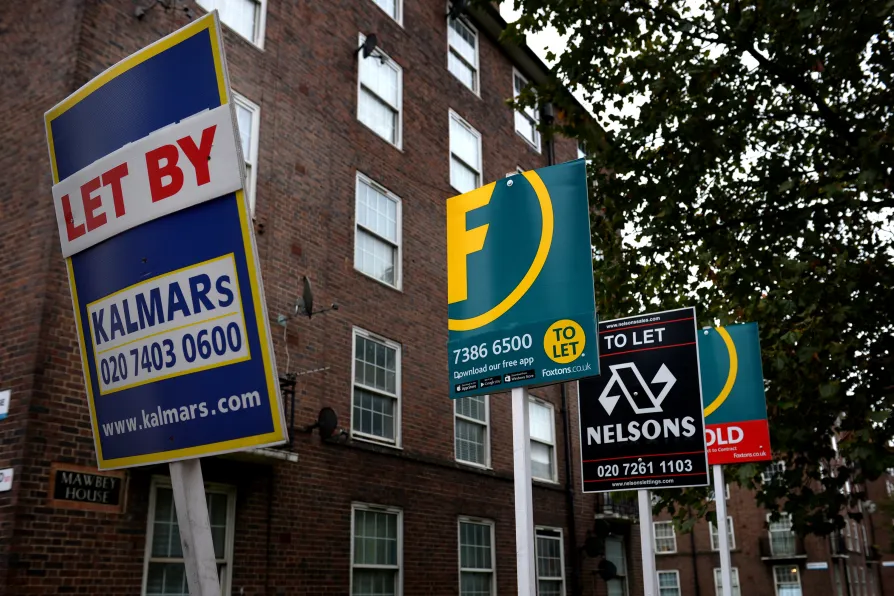Rip-off rents devour more than a third of tenants’ incomes in England

 Letting and estate agents signs outside flats on the Old Kent Road in London
Letting and estate agents signs outside flats on the Old Kent Road in London
RIP-OFF rents are devouring more than a third of tenants’ incomes in England, leading to renewed demands from campaigners today to introduce urgent controls.
People earning a median salary spent 36.3 per cent of their income on an average-priced rented home in England last year, up from 33.1 per cent in 2023, figures from the Office for National Statistics (ONS) showed.
London tenants spent a staggering 41.6 per cent of their income on rent on average, rising to as high as three-quarters in the borough of Kensington and Chelsea.
“This country desperately needs rent control,” said Jae Vail from the London Renters Union. “Rip-off rents are forcing ordinary people to cut back on food, heating and other essentials.
“For those of us who can no longer meet landlords’ extortionate demands, we are forced out of the communities that we have lived in for years or pushed into temporary accommodation.”
Figures released last month show that there are 128,000 households living in temporary accommodation in England, a record high.
According to charity Crisis, the end of a private tenancy is now the leading reason for homelessness in England.
Rents in the capital have now soared to £1,957 per month on average, and £1,232 across England.
In Bristol, rents ate up 44.6 per cent of median incomes, while in Trafford, Manchester, tenants were having to fork out 41.3 per cent of their wages.
Generation Rent’s chief executive Ben Twomey said: “Renters are being crushed under the weight of high, unaffordable rents.
“For families up and down the country this means being unable to put money aside for the future, or facing a daily choice between putting food on the table or getting into debt.
“With renters in some of our biggest cities facing the most back-breaking costs, the government must urgently give metro mayors all the powers they need to slam the brakes on rising rents.”
The latest figures far surpass Office for National Statistics’ affordability benchmark, defined as 30 per cent of median income.
Kate Alexander from tenants’ union Acorn said: “We cannot — and should not — have to rely on the goodwill of others for our right to a safe and secure home.
“We need the government to bring in rent controls and build social houses to tackle the crisis of runaway rents, and to prevent more families being priced out of their homes and communities.”
Last month, the government set out plans to deliver 300,000 social and affordable homes — but the target comes with a 10-year deadline.
The Renters’ Rights Bill, which has promised improvements for renters, including a ban on Section 21 “no-fault” evictions, is also currently making its way through Parliament.
But Tom Darling, director at the Renters Reform Coalition, said the Bill “won’t put a lid on the affordability crisis.”
“The government should establish a national rental affordability commission to look at ways to bring rents down relative to incomes, including investigating different types of rent regulation.”
A Ministry of Housing, Communities and Local Government spokesperson said: “We are taking decisive action to fix the housing crisis and deliver 1.5 million homes through our Plan for Change.
“The best way to improve housing affordability is to increase supply, which is why we are driving up housebuilding, including delivering the biggest increase in social and affordable housebuilding in a generation — backed by £39 billion investment.”
It added that the Renters’ Rights Bill will “transform lives for tenants by capping advance payments to a month’s rent, banning unfair bidding wars, and giving tenants the right to directly challenge excessive rent hikes.”










